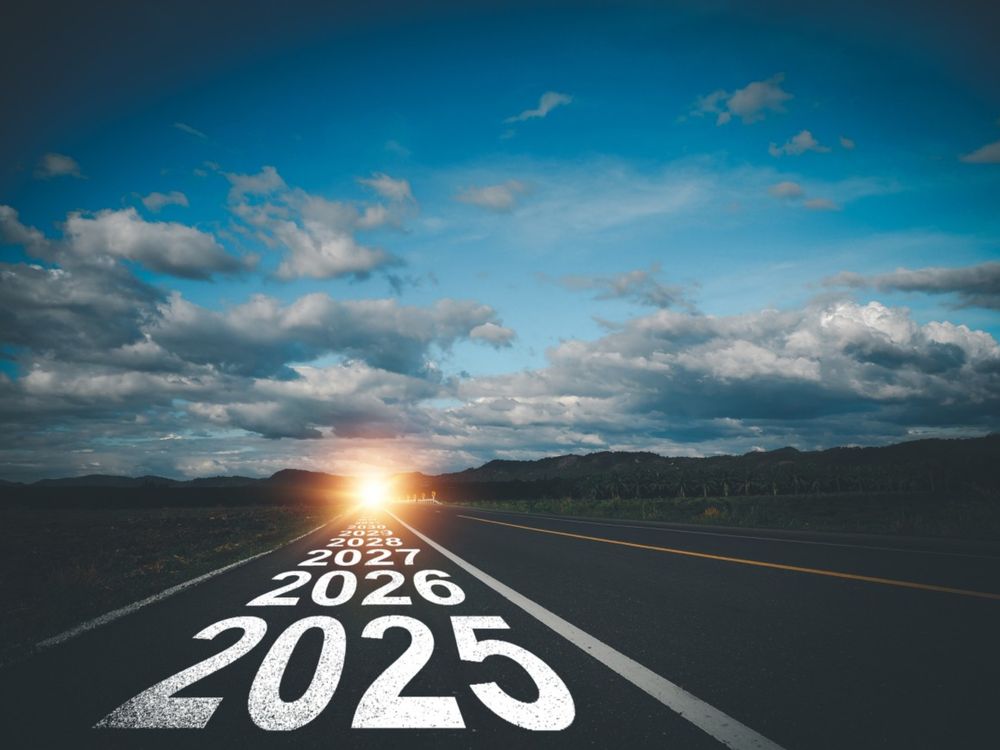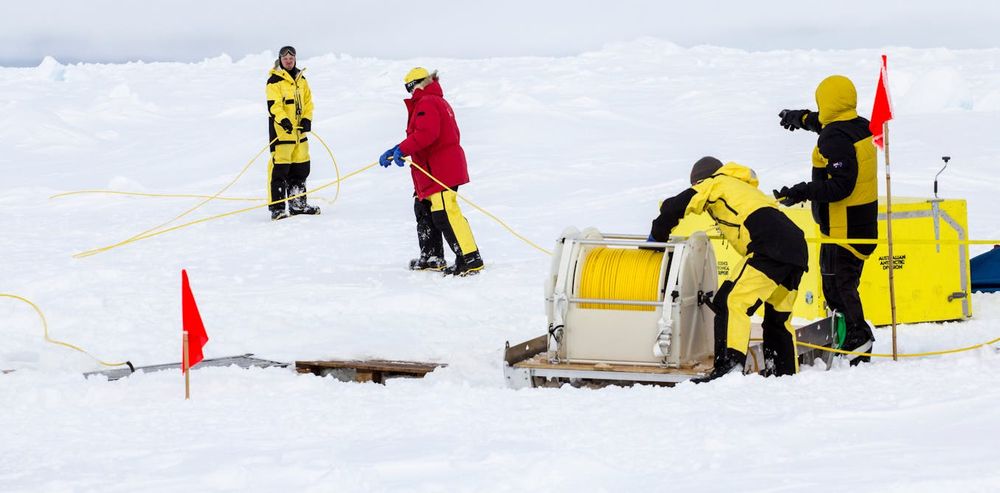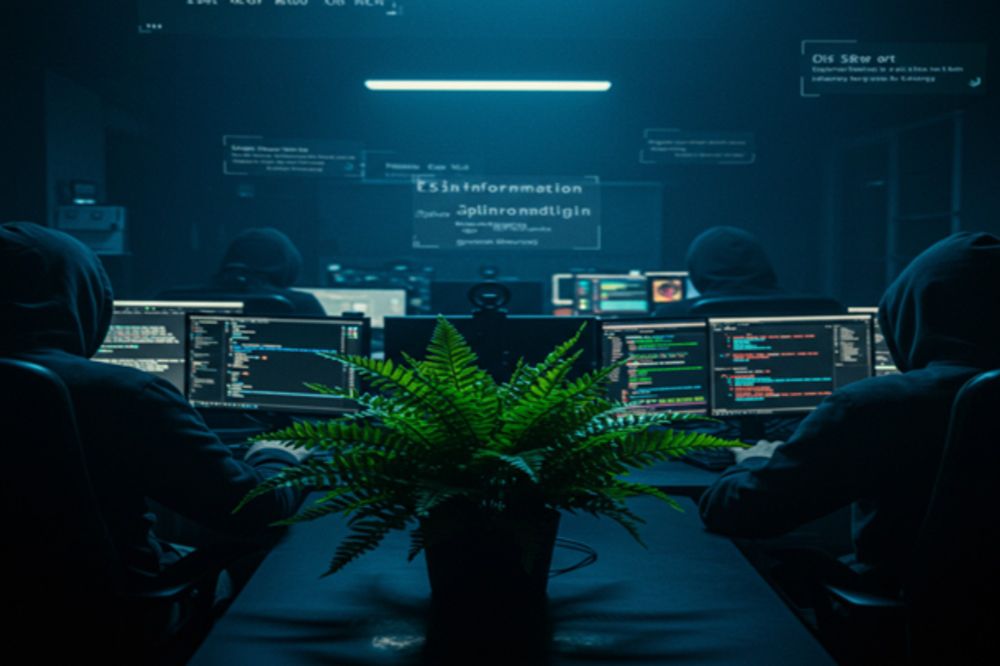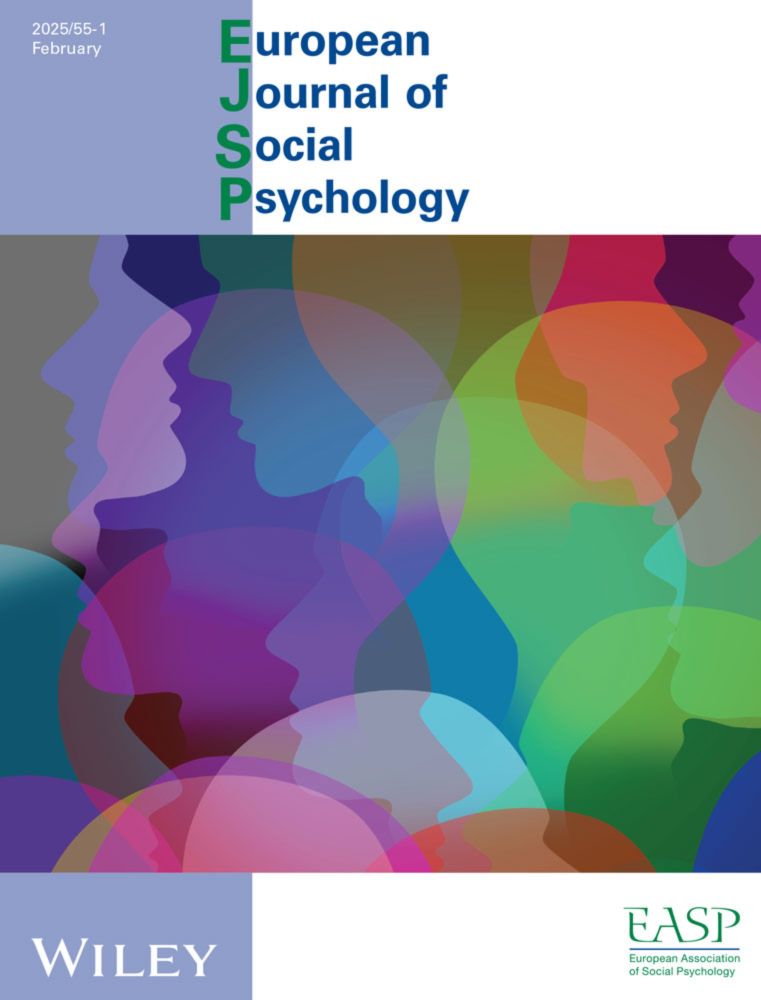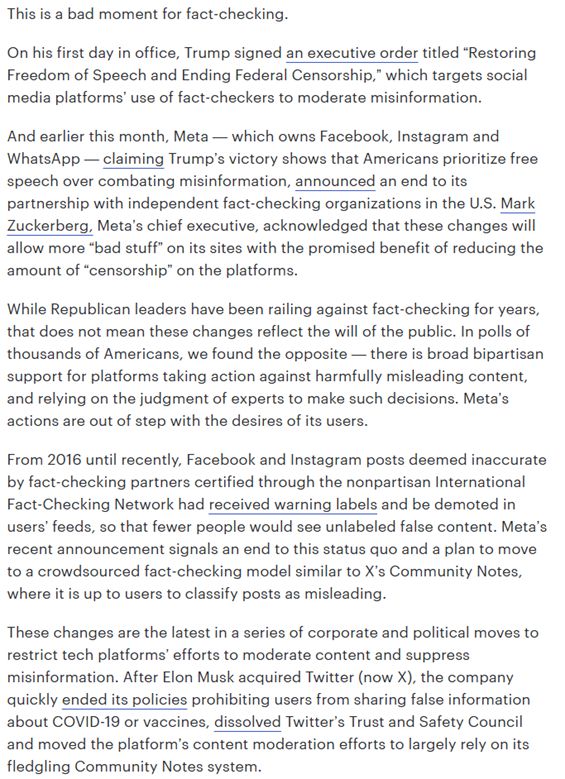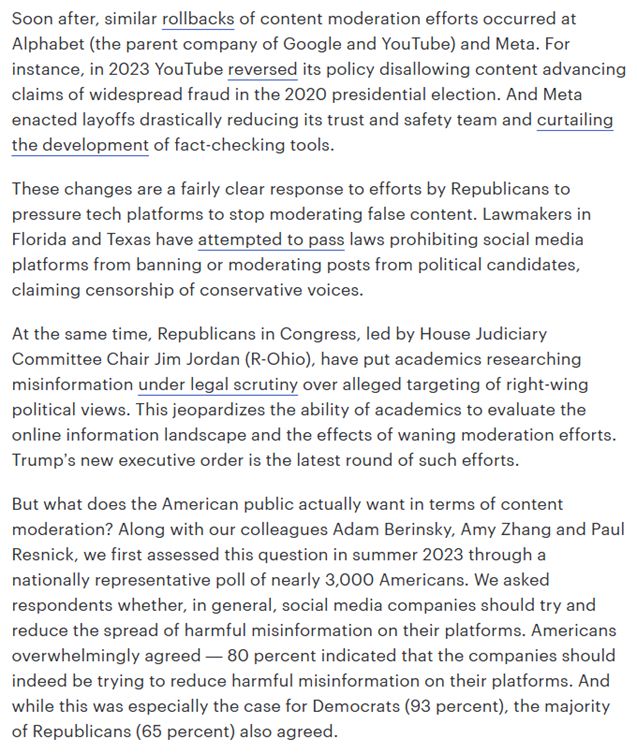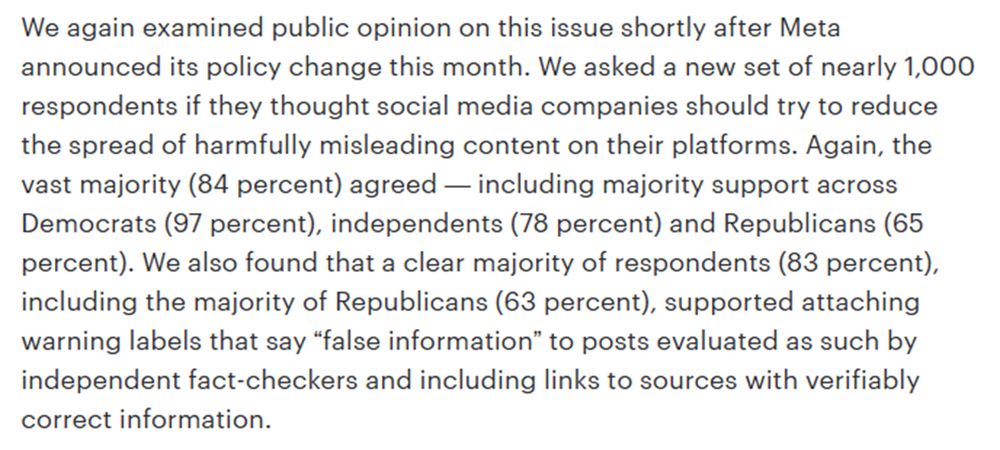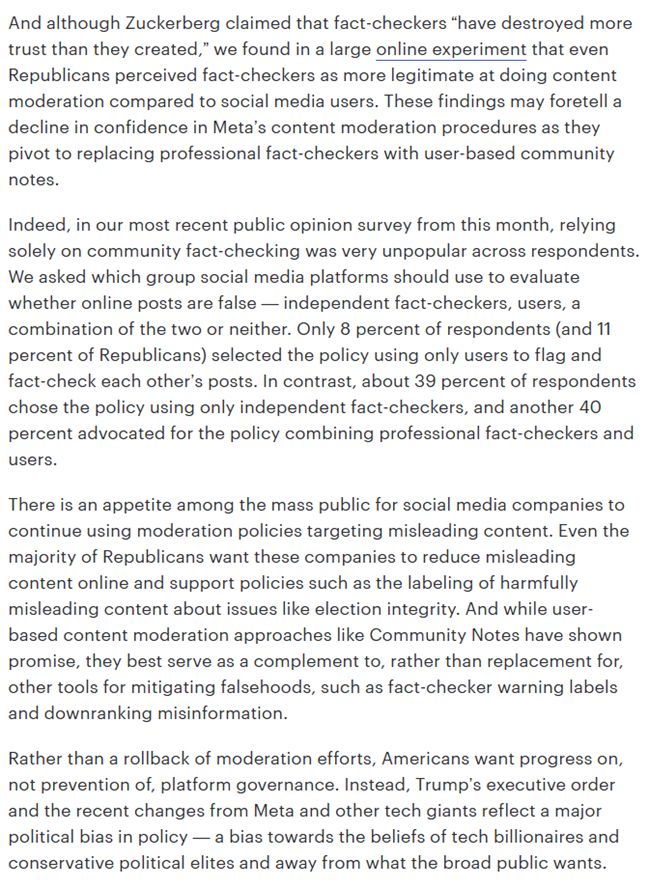
Scientists who use AI published 3X more papers, received 5X times more citations, and reached leadership roles faster than their AI-free peers.
But science as a whole is paying the price. AI-driven work circles the same crowded problems, are leads to a less interconnected scientific literature
25.01.2026 20:42 — 👍 46 🔁 8 💬 2 📌 2

Abstract
Objective
Anti-science sentiment has the potential to become a major societal problem, and research has started considering the psychological and ideological antecedents of science rejection of novel science and technologies. Precision Health (e.g. human genetic mapping, health data digitalisation and access, wearable devices and digital apps) aims to pre-empt disease onset through the development of proactive, personalised solutions to health problems.
Methods and Measures
In a preregistered study using a national sample of adult Australians (N = 997) we predicted attitudes to 10 Precision Health science areas from socio-demographic and psychological variables.
Results
On average Australians were positive towards precision health technologies (Ms = 5.03–5.66, 7-point scale). Increased institutional trust in health, science, and medicine (B = 0.49, SE = 0.04) and being older (B = 0.004, SE = 0.002) significantly predicted positive attitudes. Institutional trust in governments, conspiracy belief, social dominance orientation, right-wing authoritarianism, tertiary-education level, importance of religion/spirituality and political ideology did not.
Conclusion
The majority of Australians were favourable towards Precision Health, with institutional trust playing a key role in positive attitudes. We note the importance of understanding the role of social and ideological antecedents of science opposition now, and going forward with the development of technologies.


Who is positive about precision health technologies?
Demographic and psychological factors associated with
science opposition
Golley, @scicomguy.bsky.social, Walshe, & I examine the psychological / ideological antecedents of attitudes to precision health
see here: www.tandfonline.com/doi/full/10....
22.01.2026 06:35 — 👍 3 🔁 1 💬 0 📌 0

Abstract
Research seeking to explain why people believe conspira-
cies has largely focused on intrapsychic factors, but there is
growing research examining structural-level elements of dis-
advantage. The socio-functional model of conspiracy belief
(Adam-Troian et al., 2023, British Journal of Social Psycholog y,
62, 136) posits that subjective feelings of permanent inse-
curity arising from objective material strain (i.e., precarity)
cause conspiracy belief directly or indirectly through insti-
tutional distrust. Across three preregistered studies using
observational longitudinal designs over 3 (n = 637) and
11 months (n = 832), and a between-group experimental de-
sign (n = 285), we use various methods to estimate causal ef-
fects for this proposition during the current cost-of-living
crisis. In Studies 1 and 2 using random intercept cross-
lagged panel models, we find no evidence that increases in
precarity temporally precede increases in conspiracy belief
(or vice versa) but find stable between-persons effects over
time. In Study 3, despite successfully manipulating precarity
using a self-imagine paradigm, we find no direct or indirect
effect on conspiracy belief through decreased government
trust. We discuss the importance of using methods that per-
mit credible causal inferences and key directions for future
studies investigating the socio-functional model.



Testing the socio-functional model: Does precarity
cause conspiracy belief?
TLDR; probably not
huge thx: Antipodean Misinformation and Conspiracies Club @matthewmatix.bsky.social @lingtax.bsky.social @scicomguy.bsky.social @srhastraea.bsky.social @eddieclarke.bsky.social & students osf.io/nq3y7/
27.12.2025 04:12 — 👍 12 🔁 7 💬 2 📌 0
Awesome news @scicomguy.bsky.social !!!
15.12.2025 03:08 — 👍 5 🔁 1 💬 0 📌 0

2025: Outstanding scholars awarded Mana Tūānuku Research Leader Fellowships
The Royal Society Te Apārangi has selected 12 mid-career researchers to receive Mana Tūānuku Research Leader Fellowships in 2025.
What drives people's views on public health measures? I’ll be digging into this thanks to a Mana Tūānuku Research Leader Fellowship from the Royal Society Te Apārangi. Huge thanks to everyone who has backed me on this journey. I’m excited for what comes next www.royalsociety.org.nz/news/2025-ma...
12.12.2025 02:03 — 👍 4 🔁 1 💬 1 📌 0

Rate your score on Factor Fexcectorn.
Well done, Scientific Reports. pubpeer.com/publications...
26.11.2025 18:35 — 👍 165 🔁 52 💬 18 📌 43

Marsden Fund Awards 2025
Published on 6 Whiringa-ā-rangi November 2025
You can download an Excel spreadsheet of these results here: 2025-Marsden Fund Supplement
The definitions of the 8 Marsden Fund panels can be found here...
@srhastraea.bsky.social is a humble & busy guy so the aussie will announce his successful #marsden
Unpacking how we choose who to trust for knowledge in complex, contentious issues with the potential for misinformation
@scicomguy.bsky.social @matthewmatix.bsky.social
@rachelprozac.bsky.social
05.11.2025 04:21 — 👍 10 🔁 4 💬 3 📌 0

Published today: One of the biggest #science #communication studies to date. We asked 71,922 people in 68 countries how they #engage with information about #science and combined the data with several country-level factors: journals.sagepub.com/doi/10.1177/... #OpenAccess
21.10.2025 12:26 — 👍 157 🔁 83 💬 4 📌 11

New research challenges the idea of a ‘vicious cycle’ between psychological distress and conspiracy beliefs
One prominent theory says conspiracy beliefs are triggered by elevated distress. But a new study finds limited evidence to support this claim.
tldr: we found very limited evidence for distress subsequently increasing belief in conspiracy theories using a longitudinal survey sampling participants 7 times over ~6 months - and no evidence for belief in conspiracy theories worsening distress over time
12.10.2025 20:14 — 👍 6 🔁 3 💬 0 📌 0
Great news! Congrats to you both!
02.10.2025 23:08 — 👍 1 🔁 0 💬 0 📌 0
No access ⛔
New report documents the difficulty for researchers to get access to social media data. The access challenge has multiple effects, such as turning away from studying some platforms, redesigning studies, and fears of violating terms of service.
www.digmin.dk/Media/638923...
08.09.2025 06:02 — 👍 48 🔁 18 💬 3 📌 0
Not disagreeing, but genuinely ignorant here -- a) what is the problem with 'sovereign citizen' as a broad label, and b) what is the best language to describe people with these kinds of beliefs, it feels relevant to the reporting on this story.
27.08.2025 22:51 — 👍 2 🔁 0 💬 1 📌 0
This is a nice write-up of our recent paper by PsyPost, with clear info about limitations and small effect sizes.
I would like to clarify that I am not in fact the person in the photo, though
doi.org/10.1002/ejsp...
11.08.2025 22:22 — 👍 7 🔁 3 💬 1 📌 0
Thanks for your interest in the article, and I'm sorry it didn't address the points that you wanted it to. The underlying article was about comparing *broad strategic approaches* among island nations.
23.07.2025 21:34 — 👍 0 🔁 0 💬 0 📌 0
'A tendency to feel victimized predicts believing in conspiracies.'
That’s the TL;DR from @marlephie.bsky.social’s great summary of new research below. Backed by a huge amount of work and international data. Grateful to have been part of this excellent study. 👍
20.07.2025 10:22 — 👍 2 🔁 0 💬 0 📌 0
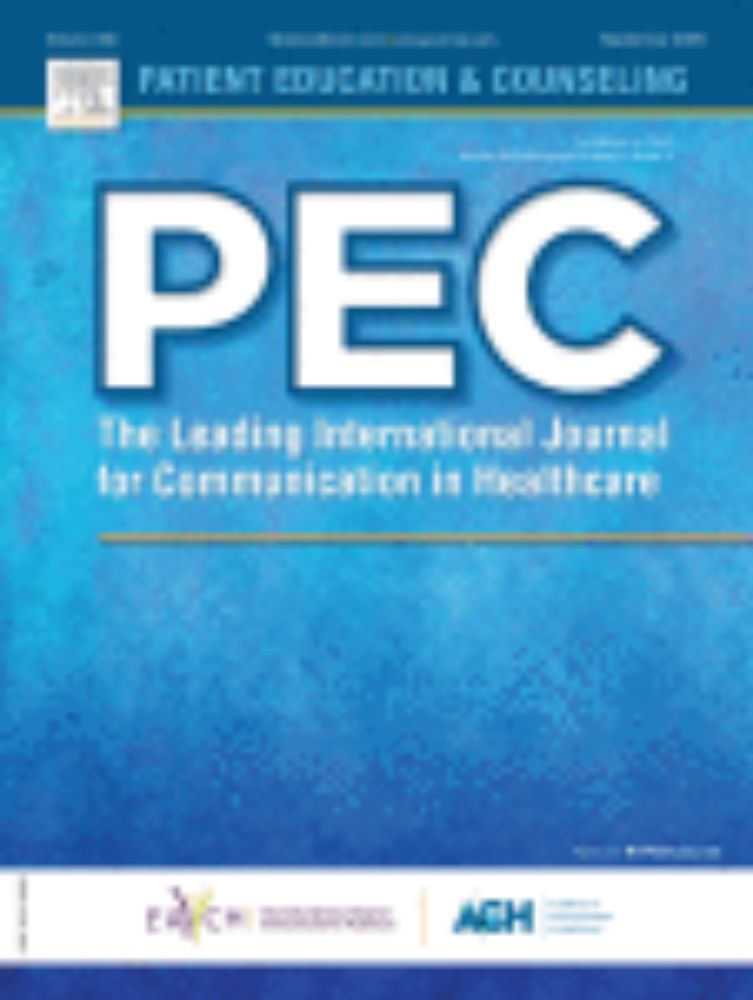
Patient autonomy in decision-making is more than individual belief: Understanding why health misinformation and conspiracy theories are so appealing
haven't posted in a while, so here goes.
recently had the opportunity to peer-review a thoughtful piece about autonomy and health-misinformation and #conspiracytheories (see here: linkinghub.elsevier.com/retrieve/pii...) & write a commentary on it (see below or authors.elsevier.com/a/1lPXr2dv7n...)
15.07.2025 02:23 — 👍 3 🔁 2 💬 0 📌 1
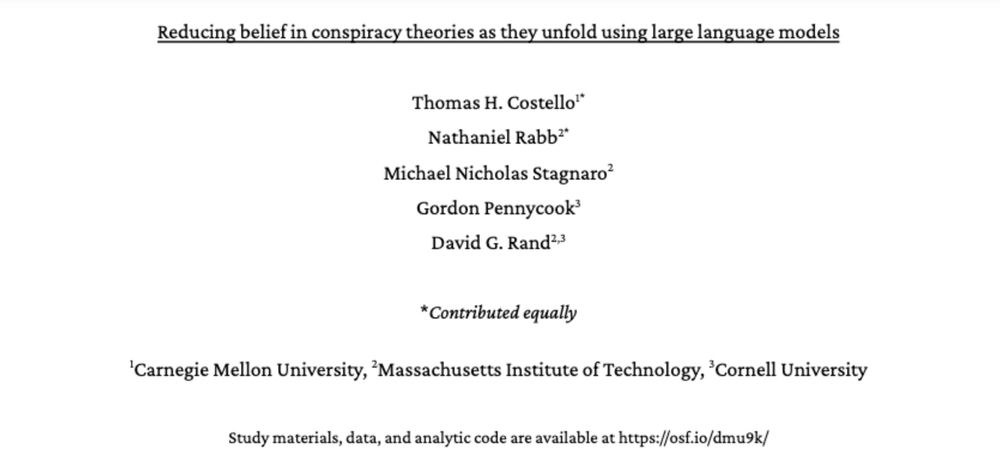
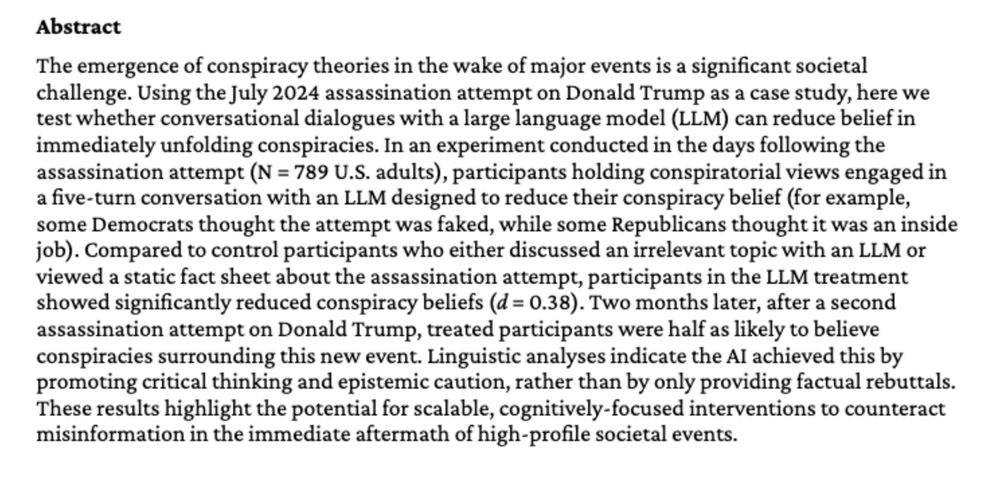
Conspiracies emerge in the wake of high-profile events, but you can’t debunk them with evidence because little yet exists. Does this mean LLMs can’t debunk conspiracies during ongoing events? No!
We show they can in a new working paper.
PDF: osf.io/preprints/ps...
09.07.2025 16:34 — 👍 52 🔁 18 💬 3 📌 3
I had a great chat with @comingupcharlie.bsky.social about why some people reject germ theory in favour of alternative views like ‘terrain theory’, and make a brief appearance in this deep dive into the NZ influencers promoting these ideas. Well worth a read. 👇
29.06.2025 21:30 — 👍 5 🔁 1 💬 0 📌 0
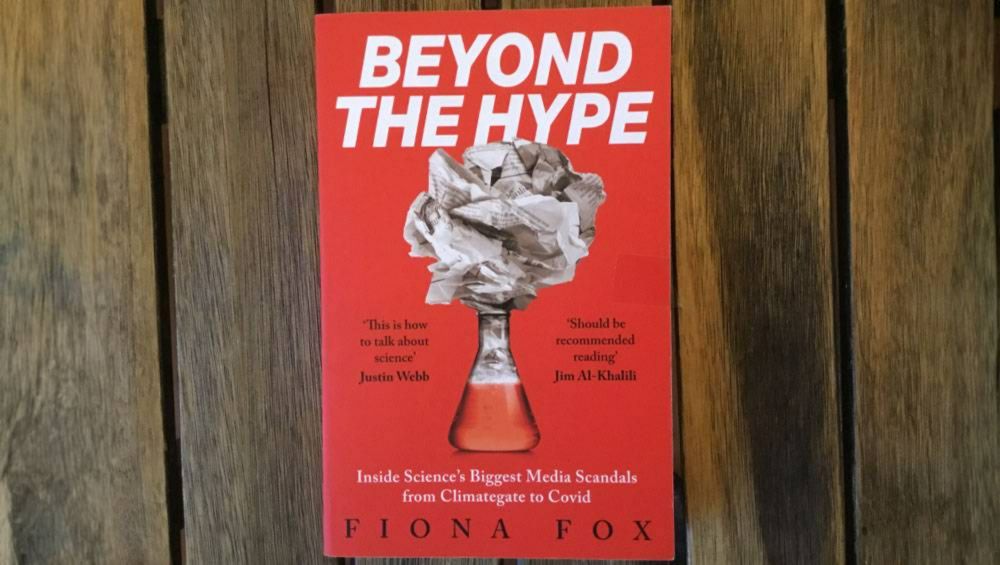
Front page frenzy: From Frankenfood to Covid-19 - NBR | The Authority since 1970
The National Business Review Online is New Zealand's authority in breaking business news and analysis.
Nice to see the work of the Science Media Centres highlighted by NBR review of Fox's book. But disagree with the reviewer on one point, NZ's @smcnz.bsky.social has in fact grown in scope and size, and is all the more important given fewer specialist reporters. www.nbr.co.nz/book-review/...
22.06.2025 21:38 — 👍 2 🔁 1 💬 0 📌 0
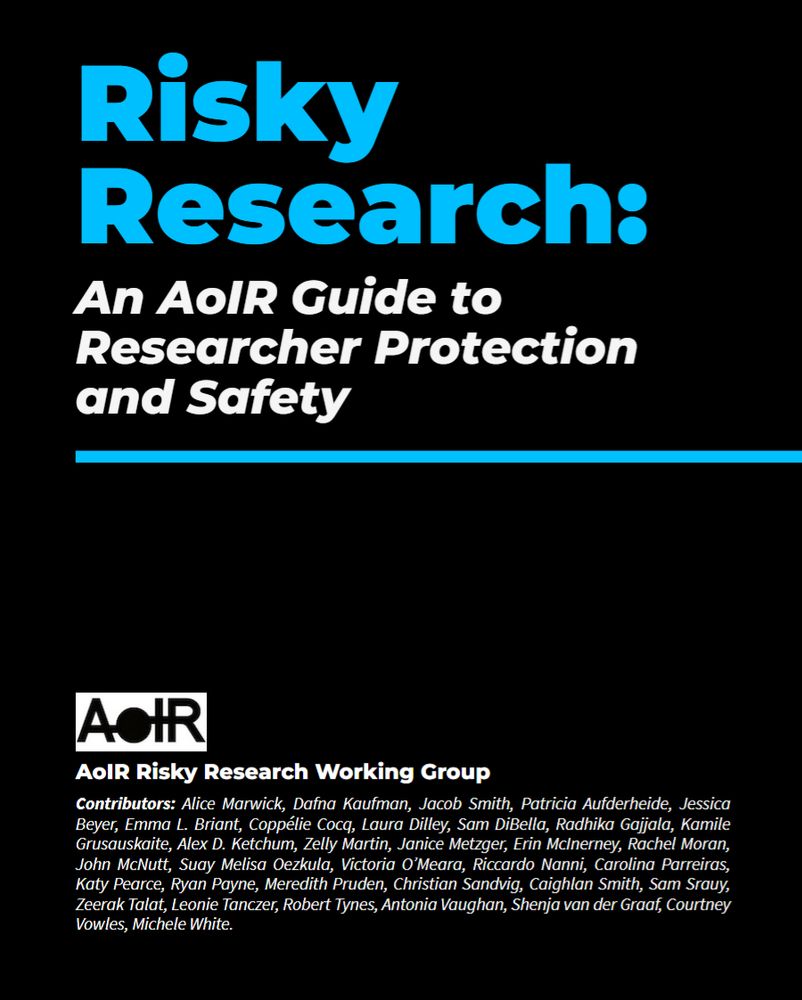
Cover Image for:
Risky Research: An AoIR Guide to Researcher Protection and Safety
AoIR Risky Research Working Group
Contributors: Alice Marwick, Dafna Kaufman, Jacob Smith, Patricia Aufderheide, Jessica
Beyer, Emma L. Briant, Coppélie Cocq, Laura Dilley, Sam DiBella, Radhika Gajjala, Kamile
Grusauskaite, Alex D. Ketchum, Zelly Martin, Janice Metzger, Erin McInerney, Rachel Moran,
John McNutt, Suay Melisa Oezkula, Victoria O’Meara, Riccardo Nanni, Carolina Parreiras,
Katy Pearce, Ryan Payne, Meredith Pruden, Christian Sandvig, Caighlan Smith, Sam Srauy,
Zeerak Talat, Leonie Tanczer, Robert Tynes, Antonia Vaughan, Shenja van der Graaf, Courtney
Vowles, Michele White.
We are delighted to share the publication of Risky Research: An AoIR Guide to Researcher Protection and Safety, the culmination of over two years of collaborative effort by the AoIR Risky Research Working Group.
aoir.org/riskyresearc...
02.05.2025 02:26 — 👍 152 🔁 115 💬 5 📌 11
Does microtargeting work? The idea that people can be manipulated by political messages that are furtively tailored to their personality or other vulnerabilities has triggered much concern. But how well founded are those concerns? 1/n
01.02.2025 12:32 — 👍 101 🔁 57 💬 5 📌 9
SocialMediaLab.ca - News & analysis by @philipmai.com re: the politics of tech, social media, AI, immigration, democracy, mis/disinfo, & propaganda. Explore our suite of social media tools & dashboards for public interest research: socialmedialab.ca/apps/
Assistant Professor at Dublin City University. Working on all things cultural, evolution, and psychology.
🎓Security Ph.D. Hostage AGAA📚 Extremism, VE, Terrorism #NatSec Pracademic MA#Female extremism. 📚 | Interested in iconography, lexicons, 'patriots', sovereigns, apocalypticism, accelerationalism🚓 BA Psychology. www.unmaskingextremism.com
Professor of Applied Mathematics at the University of Canterbury, NZ. Fellow @royalsocietynz.bsky.social. Math modelling in biology and epidemiology. Bicycles make the world a better place. He/him
https://www.math.canterbury.ac.nz/~m.plank/
Educator, postqualitative researcher, writer, avid reader: life-long learner. Inspired by ‘new’ materialist feminism, critical posthumanism. Creativity, curiosity, wonder. Constantly doing the laundry.
Skateboarding, Tech-criticism, Blockchain colonialism and platform geopolitics, film, LFC.
Associate Professor @ Massey University
• Mental Health & Addiction
• Board member @TePou @SpeedFreaks
• Aotearoa New Zealand
I'm a health professional who’s all in on using the science of science communication to fight climate change. My message: The end of fossil fuels will be a new beginning for health. #Resist
Postdoctoral research fellow at Institute for Climate Risk & Response, UNSW | Interested in Climate change, Judgment, Decision-making, Open Science, and rstat
Media academic 📱 📚 | Dad👨👧| Gardener 🍀🌸🌴 | Victoria University of Wellington - Te Herenga Waka
Making learning joyful again
https://darktimesacademy.co.nz
Physicist, complex systems, ex-COVID modeller, he/him
Author of "The Covid Response" https://www.bwb.co.nz/books/the-covid-response
Father, husband, scientist, Kiwi diaspora returnee, prof @aucklanduni.bsky.social - opinions mine. He/Him
Science: https://cosmology.auckland.ac.nz
Blog: https://excursionset.com
Newsletter: https://buttondown.com/excursionset
Juliana Cuyler Matthews Junior Research Fellow @ New College, University of Oxford | Behavioural Science & Counter-Mis/Disinformation | PhD (University of Cambridge) | www.rakoenmaertens.com
The 8th-ranked Matthew Williams on Google Scholar. Keen on open science, meta-psychology, and conspiracy theories. https://mattwilliams.netlify.app/
Cognitive/Affective neuroscientist interested in brains, emotions, research methods, meta-science, and strategies to save/improve higher ed.
Sci/env/health editor The Conversation | writer Science, Eos, Guardian, Nautilus, NZ Geographic, NZ Listener | Books Science on Ice http://bit.ly/2YsvVxv Towards A Warmer World http://bit.ly/3ObP2Er




















